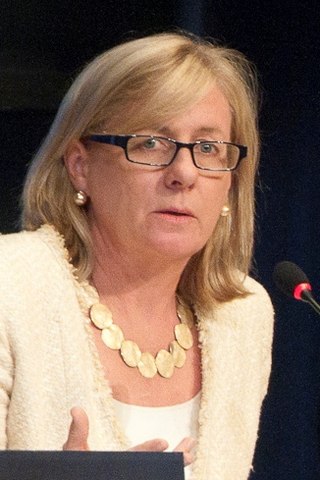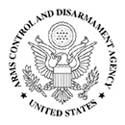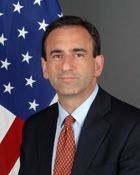Related Research Articles

The assistant to the president for national security affairs (APNSA), commonly referred to as the national security advisor (NSA), is a senior aide in the Executive Office of the President, based at the West Wing of the White House. The national security advisor serves as the principal advisor to the president of the United States on all national security issues. The national security advisor participates in meetings of the National Security Council (NSC) and usually chairs meetings of the principals committee of the NSC with the secretary of state and secretary of defense. The NSA also sits on the Homeland Security Council (HSC). The national security advisor is supported by NSC staff who produce classified research and briefings for the national security advisor to review and present, either to the NSC or the president. The national security advisor is appointed by the president and does not require confirmation by the United States Senate. An appointment of a three- or four-star general to the role requires Senate confirmation to maintain that rank in the new position.

William Anthony Kirsopp Lake is an American diplomat and political advisor who served as the 17th United States National Security Advisor from 1993 to 1997 and as the sixth Executive Director of UNICEF from 2010 to 2017.

Samuel Richard "Sandy" Berger was a Democratic attorney who served as the 18th US National Security Advisor for U.S. President Bill Clinton from 1997 to 2001 after he had served as the Deputy National Security Advisor for the Clinton administration from 1993 to 1997.

Leon Edward Panetta is an American retired politician and government official who has served under several Democratic administrations as secretary of defense (2011–2013), director of the CIA (2009–2011), White House chief of staff (1994–1997), director of the Office of Management and Budget (1993–1994), as well as a U.S. representative from California (1977–1993).

Stephen John Hadley is an American attorney and senior government official who served as the 20th United States National Security Advisor from 2005 to 2009. He served under President George W. Bush during the second term of his administration. Hadley was Deputy National Security Advisor during Bush's first term.

Nancy Elisabeth Soderberg is an American foreign policy strategist who currently serves as Resident Director for National Democratic Institute in Kosovo. Soderberg served as the third-ranking official on the Clinton Administration's National Security Council from 1993 to 1997 and as an Alternate Representative to the United Nations as a Presidential Appointee, with the rank of Ambassador, from 1997 to 2001. She has also held positions at the International Crisis Group, Connect U.S. Fund, and the Public Interest Declassification Board. In 2012 she ran unsuccessfully for Florida Senate District 4. Soderberg ran for Congress as a Democrat in the 2018 midterm elections in Florida's 6th congressional district.

The U.S. Arms Control and Disarmament Agency (ACDA) was an independent agency of the United States government that existed from 1961 to 1999. Its mission was to strengthen United States national security by "formulating, advocating, negotiating, implementing and verifying effective arms control, nonproliferation, and disarmament policies, strategies, and agreements."

The Elliott School of International Affairs is the professional school of international relations, foreign policy, and international development of the George Washington University, in Washington, D.C. It is highly ranked in international affairs and is the largest school of international relations in the United States.

Rupert "Rudy" Frank de Leon Jr. is an American former senior Department of Defense official, military adviser, lobbyist, and foreign policy adviser. He served as the Deputy Secretary of Defense, described as the "second-highest civilian defense position", from March 31, 2000 until March 16, 2001, and before appointed as Deputy Secretary he had served as Under Secretary of Defense for Personnel and Readiness from 1997 until 2000 and as Under Secretary of the Air Force from 1994 to 1997 in the administration of Bill Clinton.
Forward Engagement is a term coined by Leon Fuerth, former National Security Advisor to Vice President Al Gore, to describe the process of thinking systematic about long-range issues in governance. As a concept, Forward Engagement draws heavily on the fields of Futures Studies and Complex Systems Research.
The Project on National Security Reform (PNSR) was a nonpartisan non-profit organization mandated by the United States Congress to recommend improvements to the U.S. national security system. Advocates of reform of the U.S. national security system contend that the fundamental components of the system, which includes the National Security Council, the Department of Defense, the Department of State, the Central Intelligence Agency, among others, were largely designed via the National Security Act of 1947 in order to combat the Soviet Union. Today's global security environment, largely due to globalization, is much more complex than it was during the Cold War. PNSR argues that government structures need to be more agile and efficient in order to combat new threats such as terrorism, transnational crime, and rogue states.

Thomas Edward Donilon is an American lawyer, business executive, and former government official who served as the 22nd National Security Advisor in the Obama administration from 2010 to 2013. Donilon also worked in the Carter and Clinton administrations. He is now Chairman of the BlackRock Investment Institute, the firm's global think tank.

Philip H. Gordon is an American diplomat and international relations scholar. Since March 21, 2022, he has served as Assistant to the President and National Security Advisor to the Vice President of the United States, Kamala Harris. Earlier in his career, he was Assistant Secretary of State for European and Eurasian Affairs (2009–2011) and Special Assistant to the President and White House Coordinator for the Middle East, North Africa, and the Persian Gulf Region (2013–2015) during the Obama administration.
Christopher A. "Chris" Kojm is a professor at George Washington University. He served as the chairman of the United States National Intelligence Council from 2009 to 2014.

Clarence "Larry" Irving Jr. is the former Vice President of Global Government Affairs for Hewlett-Packard Company. He joined the company on September 9, 2009 and left in 2011.
Maurice Sonnenberg has served as an outside advisor to five Presidential Administrations in the areas of international trade, finance, international relations, intelligence, and foreign election monitoring.

Jacob Jeremiah Sullivan is an American attorney serving since 2021 as the U.S. National Security Advisor. He previously served as Director of Policy to President Barack Obama, National Security Advisor to then-Vice President Biden and Deputy Chief of Staff to Secretary Hillary Clinton at the U.S. Department of State. Sullivan also served as senior advisor to the U.S. federal government at the Iran nuclear negotiations and senior policy advisor to Clinton's 2016 presidential campaign, as well as visiting professor at Yale Law School. On November 23, 2020, President-elect Biden announced that Sullivan would be appointed the United States National Security Advisor. He took office on January 20, 2021.
References
- ↑ "Remarks of President Clinton at the 'Bosnia, Intelligence, and the Clinton Presidency' symposium at the Clinton Presidential Library, Little Rock, Arkansas". October 1, 2013.
- ↑ Steven Mufson (2000-11-02). "Rice Directs Bush's Operations; Fuerth Is Gore's Key Player: Foreign Policy Teams Coming of Age". International Herald Tribune. Retrieved 2008-02-15.
- ↑ "Old or New Democrats?: The Democratic Party and Foreign Policy in the 2004 Presidential Election". The Hudson Institute. 2004-02-05. Retrieved 2008-02-15.